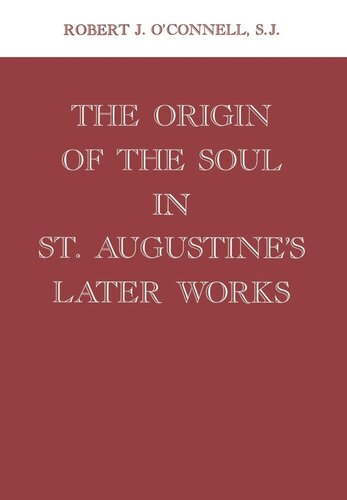

Most ebook files are in PDF format, so you can easily read them using various software such as Foxit Reader or directly on the Google Chrome browser.
Some ebook files are released by publishers in other formats such as .awz, .mobi, .epub, .fb2, etc. You may need to install specific software to read these formats on mobile/PC, such as Calibre.
Please read the tutorial at this link: https://ebookbell.com/faq
We offer FREE conversion to the popular formats you request; however, this may take some time. Therefore, right after payment, please email us, and we will try to provide the service as quickly as possible.
For some exceptional file formats or broken links (if any), please refrain from opening any disputes. Instead, email us first, and we will try to assist within a maximum of 6 hours.
EbookBell Team

5.0
28 reviewsThis book rounds off Robert O’Connell’s study of St. Augustine’s view of the human condition, begun is St. Augustine’s Early Theory of Man, A.D. 386-391, and continued in St. Augustine’s Confessions: The Odyssey of Soul. The central thesis of the first book, and guiding hypothesis of the second, proposed that Augustine thought of us, in “Plotinian” terms, as “fallen souls,” and that in all sincerity he interpreted the teachings of Scripture as reflecting that same view. Professor O’Connell sees the weightiest objection to his proposition as stemming from what scholars generally agree to be Augustine’s firm rejection of that view in his later works.
The central contention in this new book is that Augustine did indeed object his earlier theory, but only for a short time. He came to see the text of Romans 9:11, apparently, as compelling that rejection. But, then, his firm belief that all humans are guilty of Original Sin would have left traducianism as his only acceptable way of understanding the origin of sinful human souls. The materialistic cast of traducianism, however, always repelled Augustine. Hence, he struggles to elaborate a fresh interpretation of Romans 9:11, and he eventually finds one that permits him to return to a slightly revised version of his earlier view. That theory, Professor O’Connell argues, is encased in both the De civitate Dei and the final version of De Trinitate.